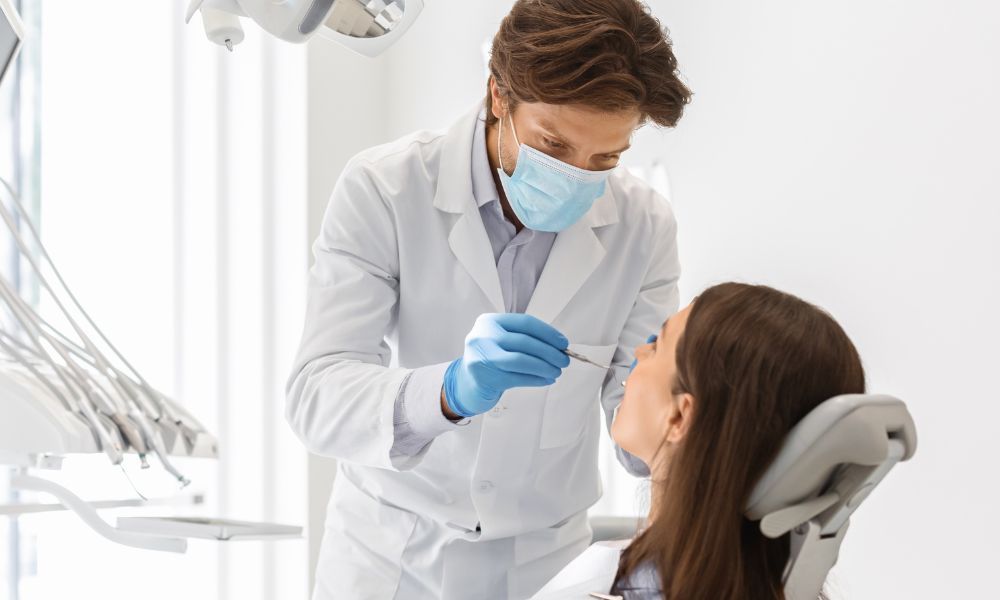Tips that Health Professional Dentists Swear By After Teeth Whitening
People are not aware of the fact that teeth whitening isn’t permanent, and its effects last only if you maintain a standard of care and caution. It doesn’t matter whether you have whitened your teeth with a medical professional or at an over-the-counter salon—the discoloration will return. The question is when and what you have to do to stop it. Discoloration creeping back between your teeth is the last thing you want after getting an expensive dental treatment. Usually, the dentist provides you with aftercare guidelines, including dos and don’ts. They tell you to avoid food items that can stain your teeth for a few days and to consume such items in moderate amounts. Teeth whitening effects can last 6 months, a year, or more if consistent with three fundamental rules: brushing, flossing, and gargling. On top of that comes your diet, which is crucial to achieving that pearly white smile that takes people’s breath away.
Pick a medical professional from a known-be-clinic who is qualified and experienced in teeth whitening, bleaching, cleaning, and other treatments. Visit a nearby family dentist in Whitby, Ontario, to get your teeth examined and explore the best treatment options.
Tips You Must Swear By After a Teeth Whitening Procedure:
There are numerous ways to keep your teeth white after the bleaching, cleaning, bonding, or teeth-whitening treatment.
Daily Regimen: Brush your teeth regularly in the morning, at night, and even in the afternoon after having lunch if needed. Don’t be too aggressive while brushing your teeth; follow a gentle motion of up, down, left, and right to clear the leftovers. Just 2 minutes of continuous brushing can help maintain healthy and clean teeth, giving them a more natural look. You can also use an electric toothbrush for effective cleaning, as sometimes stuck food at the back of the teeth can cause acid breakdown, leading to cavity-causing bacteria and a yellowish appearance.

Whitening Toothpaste & Strips: Certain reliable whitening toothpaste products are available in the market that you can use over a while or weekly to maintain the whitish look of your teeth. These toothpastes differ from regular ones as they contain several abrasives and bleaching compounds, such as baking soda, fluoride, and potassium nitrate. These ingredients break down the extrinsic stains accumulated on your teeth, making them whiter. However, teeth-whitening strips don’t work for deeper or more stubborn stains. If your teeth appear yellowish or gray, you might have to visit your dentist for an advanced teeth-whitening treatment.
Antiseptic Mouthwash: Using water for gargling can swish away the leftover food debris stuck in your mouth. However, more rigid bacteria have developed and are waiting to attack your tooth enamel, causing more damage and resulting in yellowish or grayish teeth, which aren’t easy to remove. You need an antiseptic mouthwash that is hard on those cavity-causing bacteria and can neutralize the environment in which they thrive. It sort of sterilizes your mouth, ensuring that when you sleep, no acid or bacteria pops up on your teeth.
Diet and Small Habit Changes: Diet affects how your body and teeth function. Most often, people don’t know that cavities, gum diseases, and bad breath are the primary results of a junky diet. An improper diet won’t nourish your body or your mouth. Remember, teeth also have roots; they require nutrients like Vitamin D, Vitamin C, fluoride, calcium, phosphorus, and potassium to stay healthy and strong. Consume green vegetables, cheese, yogurt, kale, and apples. Cut down on sugary foods, and if you consume foods or beverages like coffee, red wine, tea, cake, or sweets, then rinse or brush your mouth afterward.


